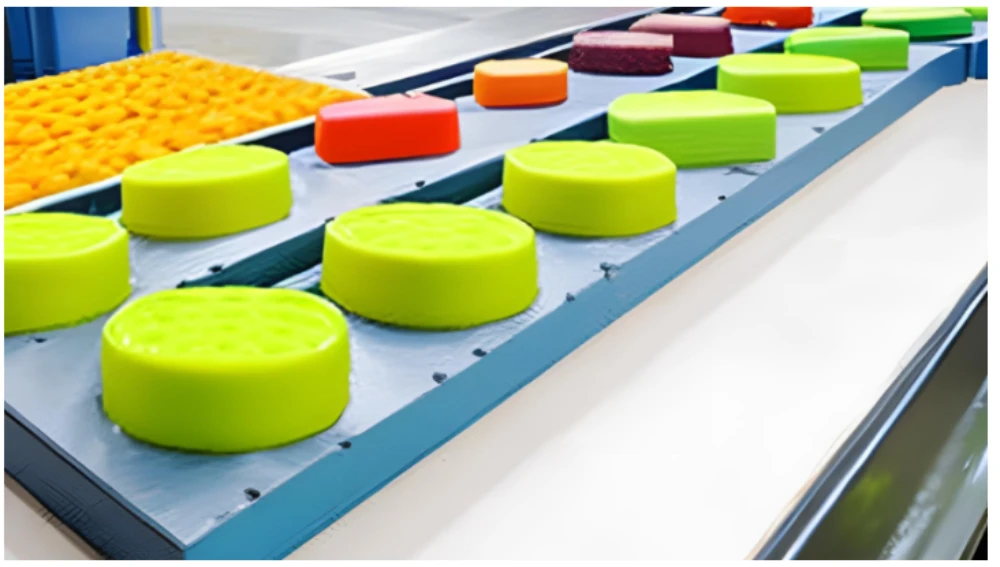Tool and die makers in India | Plastic Mould Manufacturer
15/1 Rama Road
Kirti Nagar Delhi-110015 India
+91 8883912346
asia@hongyijig.com
Certified
ISO 9001:2015
Revolutionizing FMCG Packaging: New Horizons in the Injection Moulding Industry

Introduction
The Fast-Moving Consumer Goods (FMCG) sector plays a pivotal role in our daily lives, encompassing products we use regularly, like food, beverages, cosmetics, and household items. One of the critical components in the FMCG industry is packaging, which not only protects the products but also serves as a marketing tool. In recent times, the injection moulding industry has been introducing groundbreaking updates that are set to revolutionize FMCG packaging. In this blog, we will explore these new developments and their impact on the FMCG landscape.
Injection Moulding: A Brief Overview
Injection moulding is a manufacturing process used to produce intricate and precise components by injecting molten material into a mould, allowing it to cool and solidify. The process is widely used in the production of plastic components, making it an integral part of the FMCG packaging industry.
New Updates in Injection Moulding Industry
- Sustainable Materials: With increasing environmental concerns, the injection moulding industry is now focusing on utilizing sustainable materials for packaging production. Bioplastics, which are derived from renewable sources, have gained significant traction. These materials not only reduce the carbon footprint but also contribute to the reduction of plastic waste in landfills and oceans.
- Improved Design Flexibility: Advanced injection moulding techniques, such as multi-component injection moulding and micro-injection moulding, are enabling designers to create more intricate and innovative packaging designs. This is crucial for FMCG companies looking to differentiate their products on the shelf and provide enhanced user experiences.
- Customization and Personalization: In the competitive FMCG market, customization is key. Injection moulding advancements now allow for rapid tool changes, enabling manufacturers to produce smaller batches of customized packaging without significant setup time and costs. This paves the way for personalization, limited edition runs, and co-branded packaging that resonates with target audiences.
- Smart Packaging Integration: The Internet of Things (IoT) has extended its influence to FMCG packaging through injection moulding. Smart packaging, embedded with sensors and RFID technology, can provide real-time information about product freshness, usage instructions, and more. This innovation enhances the consumer experience and ensures product integrity.
- Reduced Lead Times: Thanks to automation and digitalization, injection moulding processes are becoming more efficient, reducing lead times in production. This is particularly beneficial for FMCG companies that need to quickly respond to market demands, launch seasonal products, or adapt to changing consumer preferences.
Impact on FMCG Industry
The injection moulding updates discussed above have a profound impact on the FMCG industry:
- Sustainability Drive: The adoption of sustainable materials aligns with consumers’ growing eco-consciousness, enabling FMCG companies to portray a commitment to environmental responsibility.
- Enhanced Branding: Innovative packaging designs and customization options provide FMCG brands with a canvas to express their identity, making their products more memorable and enticing for consumers.
- Consumer Engagement: Smart packaging fosters a deeper connection with consumers by offering real-time information and interactive experiences, transforming the product into a storytelling medium.
Operational Efficiency: Reduced lead times and efficient production processes allow FMCG companies to streamline operations, optimize inventory management, and minimize waste.
Conclusion
The injection moulding industry’s advancements are reshaping the FMCG packaging landscape, offering sustainable solutions, design flexibility, and enhanced consumer engagement. As these technologies continue to evolve, we can expect FMCG products to not only meet functional requirements but also evoke emotions and create memorable interactions with consumers. The synergy between injection moulding innovation and the FMCG sector is set to shape the way products are packaged, presented, and perceived in the years to come.


